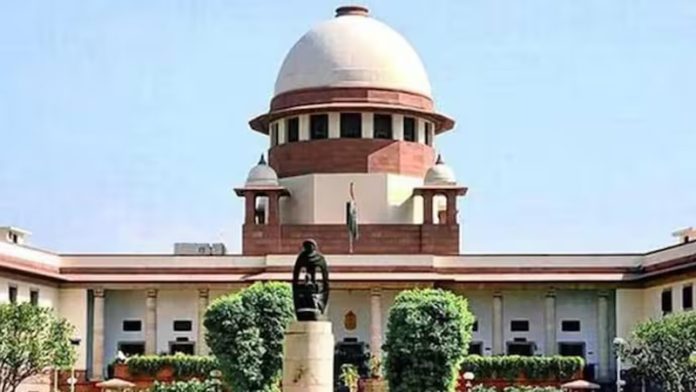NEW DELHI, Nov 1:
The Centre told the Supreme Court today that almost every country, including India, was grappling with the problem of use of black money in elections and the electoral bonds scheme was a “conscious attempt” to eradicate the menace of “unclean money” in the poll process.
Arguing before a five-Judge constitution bench headed by Chief Justice D Y Chandrachud, Solicitor General Tushar Mehta, representing the Centre, said the apex court may not take this particular scheme as a standalone attempt in the direction of dealing with the menace of black money.
Mehta highlighted steps taken by the Government to deal with black money including digitised payments and action taken against 2.38 lakh “shell companies” between 2018 and 2021.
“The use of black money in elections and politics in general and elections in particular…Every country is grappling with this problem. Country-specific issues are being dealt with by every country depending upon the circumstances existing. India is also grappling with this problem,” he told the bench, which also comprised Justices Sanjiv Khanna, B R Gavai, J B Pardiwala and Manoj Misra.
“Having tried several attempts, several mechanism and modes, the menace of black money was not being dealt with as effectively because of the systemic failures and therefore, the present scheme is a conscious and deliberate attempt to ensure clean money coming into the banking system and election…,” he said.
The bench is hearing arguments on a batch of petitions challenging the validity of the electoral bonds scheme for funding political parties.
“The use of unaccounted cash (black money) in driving the electoral process of the country remains a matter of serious concern for the nation,” he said in his written submissions filed in the court.
Referring to the role played by digitalisation, Mehta said India has nearly 750 million mobile internet users and is adding one new internet user every three seconds. “The quantum of digital payments in India is almost 7 times of that in US and Europe combined, 3 times of that in China,” he said.
During the arguments, the solicitor general said, “Legality of the scheme is entirely for your lordships to consider and decide… but one thing I will be able to satisfy your lordships is that, if the element of confidentiality goes from the scheme, the scheme goes…”.
Referring to the argument advanced by the petitioners that electoral bonds scheme has benefited the ruling party most, he said, “More contribution going to the ruling party is the norm”.
“According to you, why is it the norm that the ruling party gets a substantial part of the donations, what is the reason?” the CJI asked. Mehta, while citing figures, said they showed that whichever party is the ruling party gets more. “This is my reply not the government’s reply,” he hastened to add.
Mehta said earlier, due to the fear of victimisation, the safest way to donate was by cash in which clean money used to get converted into black money and that was disastrous for the economy.
When the bench referred to partial confidentiality and observed the person in power can have access to the details, the Solicitor General said the information is completely confidential. “That is a grey area. You may say so, the other side will not agree to it,” the bench said. (PTI)


